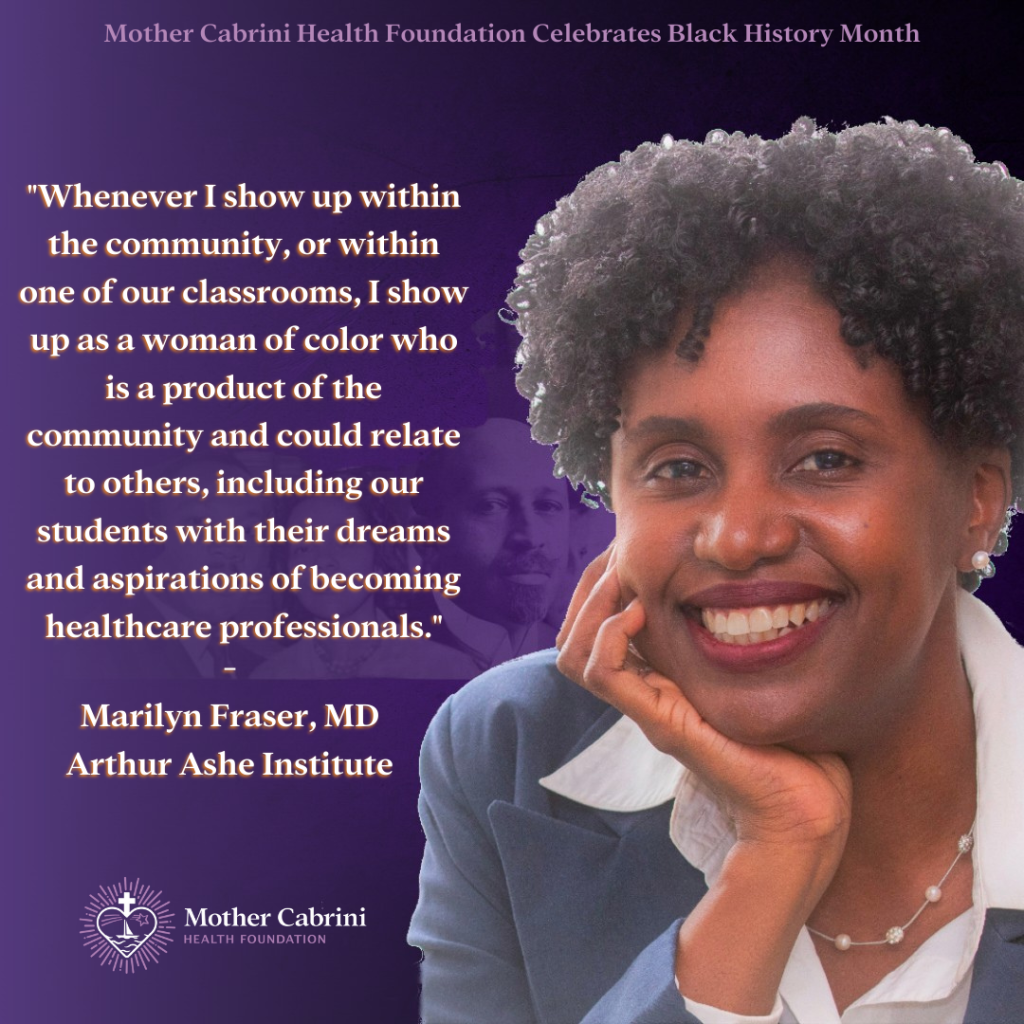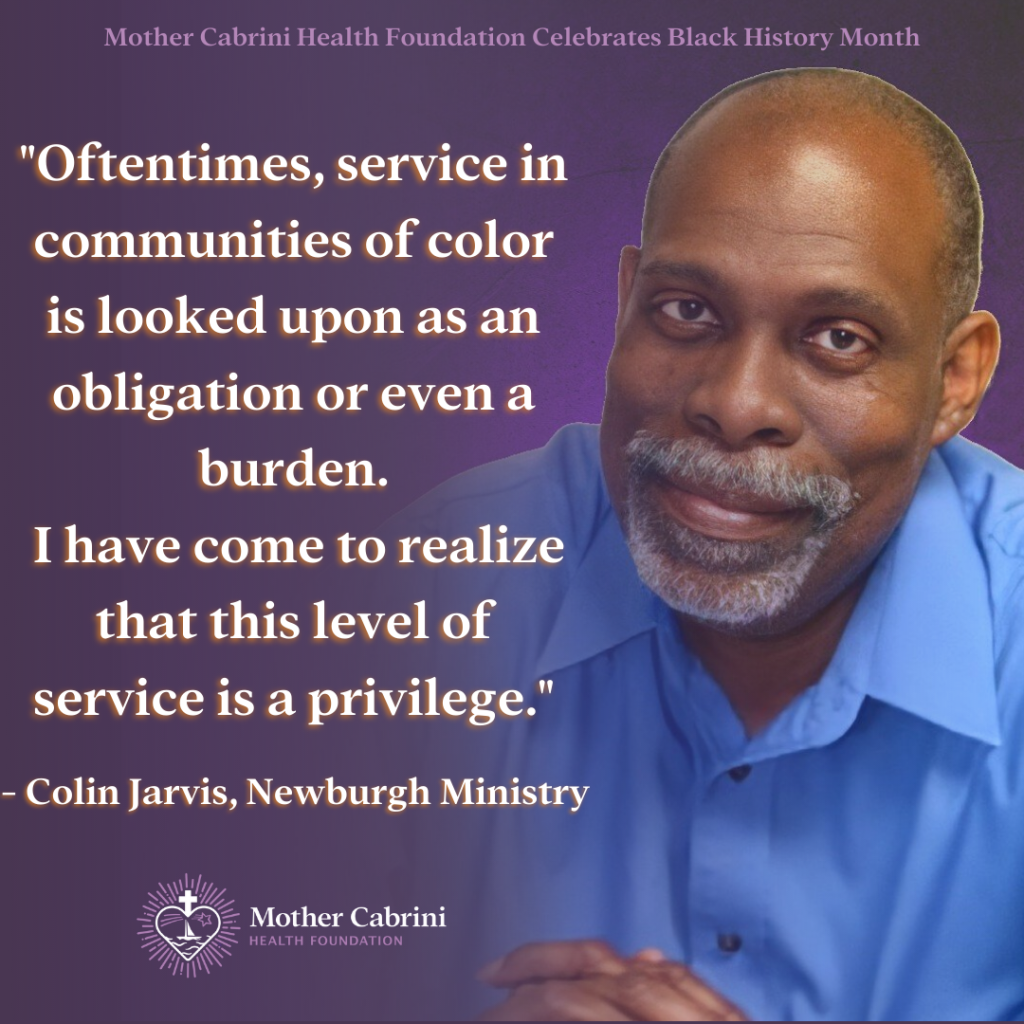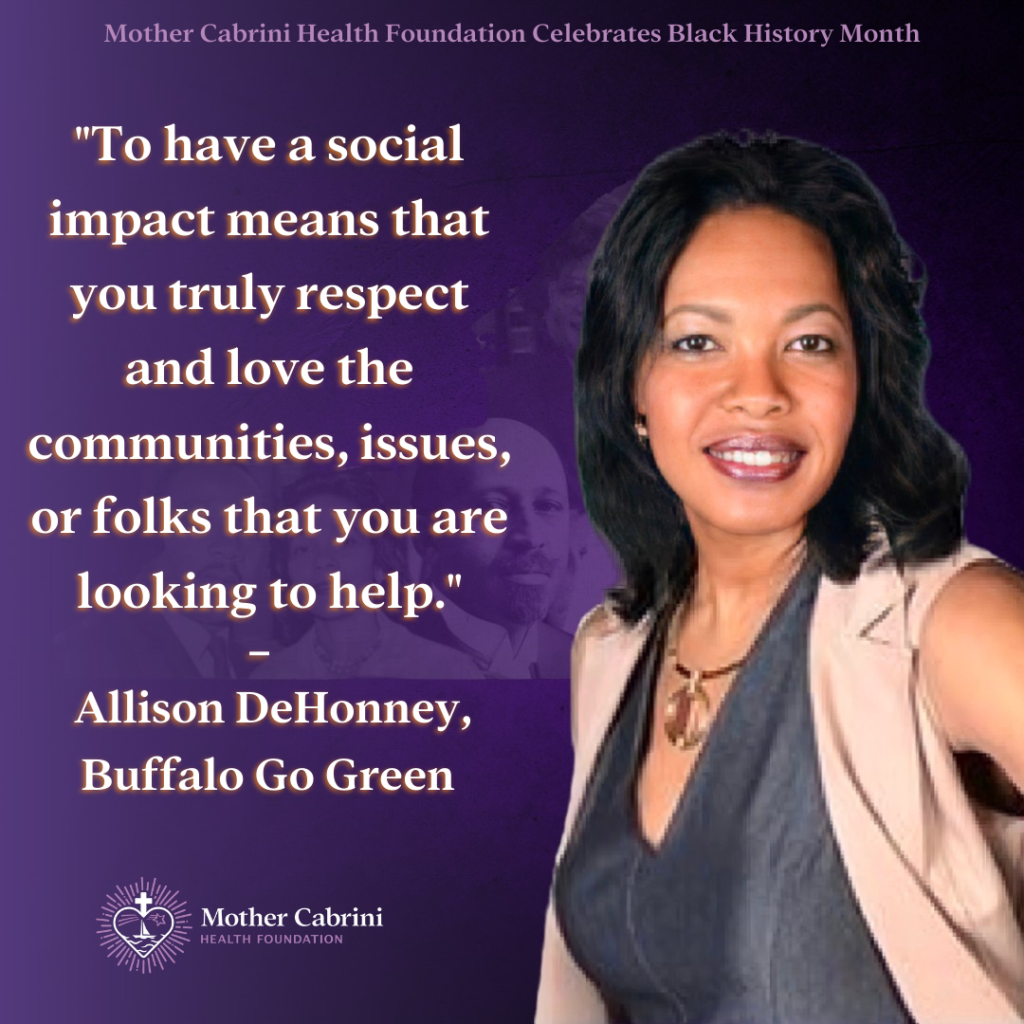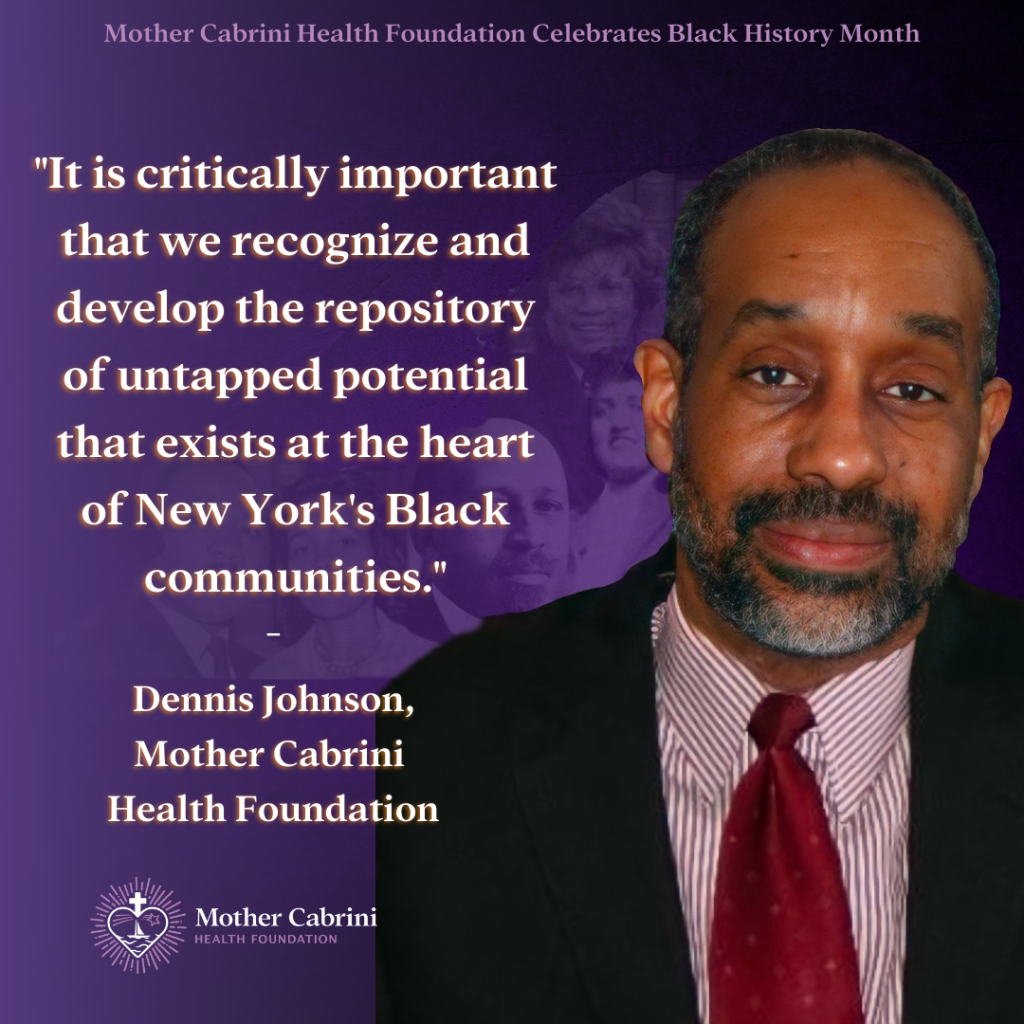Latest News | February 24, 2022
Amplifying Strategic Black Leadership in the Nonprofit World
Amplifying Strategic Black Leadership in the Nonprofit World
Nonprofits can better understand the diverse communities they serve when they have a wide range of backgrounds and viewpoints among their own staff and senior leadership.
During Black History Month, we reached out to Black leaders in the nonprofit sector to hear from them directly on the importance of representation, the impact their organizations have, and what inspires them in their work.
Dr. Marilyn Fraser, CEO of the Arthur Ashe Institute for Urban Health

First, we spoke with Marilyn Fraser, MD, the CEO of the Arthur Ashe Institute for Urban Health. As CEO, Marilyn helps lead the Institute’s efforts to connect vulnerable communities to the information, tools, and resources they need to make informed health decisions.
The Foundation’s $600,000 grant supports the Institute’s New York City-wide assessment of community needs, and the development and implementation of community-based response strategies.
We asked Marilyn about her organization and the importance of representation.
How does your current role and scope of work aid the improvement of health literacy and other issues that directly impact the Black community?
We have been focused on addressing health inequities through lenses of community health empowerment and social justice. We work with community partners to improve health literacy by training neighborhood barbers and stylists to deliver health messages to their customers. Our curricula are culturally tailored to the community and provide information that is relevant and could be shared with others. We also provide community members with the tools needed to advocate for their health and the health of others.
Can you provide an example of a time your representation as a Black woman within your organization had an impact on others?
I think whenever I have gone out into the community and have presented health topics and listened and taught others about their health, the impact has been immeasurable. Whenever I show up within the community or within one of our classrooms, I show up as a woman of color, who is a product of the community and could relate to others, including our students with their dreams and aspirations of becoming healthcare professionals.
What piece of advice would you give to BIPOC young professionals looking to make change through social impact/community organizing?
Get to learn and listen to those you are serving. Change comes from meeting people where they are and being sincere in helping others to navigate the challenges they face. Remember that you are always a student, and there is always something to learn.
Colin Jarvis, Executive Director of The Newburgh Ministry
Next, we spoke with Colin Jarvis, the Executive Director of The Newburgh Ministry, who leads the Ministry’s grassroots work supporting Newburgh residents who are homeless or at-risk of being homeless. The Ministry helps homeless Newburgh residents transition to permanent housing by providing overnight shelter, laundry, shower facilities, and much more. Additionally, through a financial literacy training program and social work services, the organization also helps prevent homelessness.

The Foundation’s grant of $150,000 helps expand the Ministry’s case management program, consisting of a case manager, peer educator, peer financial coach, and housing specialist, all working in close coordination to connect clients to community-based resources and support them in building their abilities to attain and maintain permanent housing.
Which Black leaders in non-profit/social impact have personally inspired your career path?
My world view was shaped by a young scholar from Guyana in South America by the name of Dr. Walter Rodny. He unfortunately died at a very young age as a result of his political ideology. Fortunately, before his death he wrote How Europe Underdeveloped Africa. This book defined for me the significance of Africa on the world stage and helped me to clarify my role working to build poor communities across the world. I have come to understand and embrace the meaning of my blackness as a descendant of Black royalty a world away from my ancestors.
Can you provide an example of a time your representation as a Black leader within your organization has made an impact on others?
Many years ago, I ran a small workforce development program in the South Bronx. One of the young men was teasing his computer instructor as she tried to engage in a conversation about his future career goals. He pointed in my direction and said to his instructor ‘I want to be like him. The big guy.’
The following day I couldn’t get to work because all the major routes were jammed because of an incident on the Tappan Zee bridge. I heard my phone ring. It was one of my staff. He said to me ‘are you sitting?’ I asked why and then he told me that this man had been shot the night before and his chance of survival was slim. As it turned out he did survive but he was paralyzed from the waist down.
The words ‘I want to be like the big guy’ resonate with me even today. Leadership is not a construct that takes place on a big stage or even in front of a microphone. It is what you model to the generation that comes after you on a daily basis.
Allison DeHonney, Executive Director of Buffalo Go Green
Up next, we asked Allison DeHonney about her impact at Buffalo Go Green. Buffalo Go Green (BGG) provides fresh fruits and vegetables, education, and training to underserved populations in the Buffalo and Niagara Falls area. BGG primarily targets neighborhoods such as Buffalo’s East Side, where the poverty rate is 38%, and there is a dearth of grocery options selling affordable and nutritious food.

Its signature program, which the Foundation’s grant of $75,000 helps to support 40,000 low-income community members, is a fruits and vegetables “prescription program” that provides patients at a local health clinic with access to locally grown food, healthy recipes, gardening instruction, cooking classes, and other wellness “treatments” aimed at combating conditions such as hypertension, obesity, and diabetes. We sat down with Allison to get her perspective on Black History Month and her advice for people of color interested in joining the nonprofit space.
We reached out to Allison for her perspective on Black History Month and her advice for people of color interested in joining the nonprofit space.
Why do you think the work within health equity and literacy is so important to discuss during Black History Month?
I am so appreciative that this subject is being highlighted during Black History Month this year, however, this is a subject that needs year round attention. In the Black community we must start to focus on our health considering our diets as a first step. We have serious issues. We need more Black doctors, nurses, researchers, experts in Agriculture from farming to finance to soil scientists. We need to focus on nutrition in our households, however, I know that this can be difficult when so many folks are struggling with all of the social determinants of health, for example, housing, transportation, poor education and then of course food insecurity. We have a lot of work to do! We need policy change at the local, state and federal levels.
What kind of leader would you like to be recognized as?
A collaborative leader that allowed those she worked with the ability to grow, to shine and to be heard. Someone who inspired others to pursue their passion.
What piece of advice would you give to BIPOC young professionals looking to make change through social impact/ community organizing?
To have a social impact means that you truly respect and love the communities, issues or folks that you are looking to help, uplift or effect some type of change for their greater good. This must be done with kindness and compassion, otherwise find a different line of work.
Dennis Johnson, Managing Director of strategy and evaluation of mother cabrini health foundation
Finally, we wanted to wrap up our conversations by talking to our very own Dennis Johnson. As Managing Director for Strategy and Evaluation, he has developed and directed the Foundation’s strategic planning and evaluation framework to inform and support effective, impactful grantmaking. Dennis is also the Co-Chair of the Health Working Group at Philanthropy New York (PNY).

Which Black leaders in non-profit/social impact have personally inspired your career path?
For one, General Colin Powell. Most recognize Gen. Powell as an honored military and government leader as well as the nation’s first Black Secretary of State, However, we would be remiss in overlooking his contribution as chairman and co-founder of America’s Promise, a national nonprofit that focused on providing health and other support services to underserved children and youth in communities across America. I was honored and privileged to work with him and inspired by his discipline and commitment to lifting marginalized communities like the South Bronx of his youth.
Another Black leader that influenced me was Dr. Aaron Shirley, a pediatrician, who helped to pioneer the community health center movement that enabled poor Black communities in rural Mississippi to gain access to comprehensive medical care. The resistance he faced to helping disenfranchised communities overcome entrenched racism to secure access to basic health care was truly challenging. His perseverance launched a movement that changed the health landscape for Black communities across America. His legacy as a health and civil rights leader endures in many ways, not the least of which was the establishment of the Jackson Medical Mall in Mississippi, a magnificent, one-of-a-kind, full-service health facility housed in a repurposed mall in Jackson, Mississippi. The facility, which attracts and serves as a preferred destination for residents of surrounding counties, is a monument to his commitment to ensure health care access as a right for the poor and underserved.
Can you provide an example of a time your representation as a Black leader within your organization has made an impact on others?
It is a privilege to have been able to attain a leadership position at the Foundation. As a Black person in a leadership role, I am able to provide a life’s worth of perspective, and am willing to bring my experience, as well as any accrued wisdom, to help in deliberating on ideas, issues, or concerns. An example of impact has been a role in shaping the direction and priorities for focus, in collaboration with other organizations that have resonance in the Black community, to successfully mobilize increased community participation in vaccination efforts.
What kind of leader would you like to be recognized as?
As one who understands and appreciates the scope of concerns of residents in communities that are underserved and struggling. I was born and raised in public housing, attended, and taught in NY public schools, raised a family in NY, and put in 27 years at Children’s Health Fund developing and supporting mobile pediatric programs in some of the nation’s most underserved areas. In many ways, I am inextricably bound to these communities. I would like to be recognized as one who understands that the tools and leadership talent are there to achieve equity goals. However, it is critically important that we recognize and develop the repository of untapped potential that exists at the heart of NY’s Black communities. Are we committed to finding and nurturing it? Isn’t it incumbent upon us to do so?
As we reflect on Black History Month, it is critical that we raise up Black leadership in the nonprofit sector. Marilyn, Colin, Allison, and Dennis, as well as many others, bring their lived experiences to their work every day, and our communities are better because of it.
